
William Sutherland, 10th of Duffus (died 1626) was a member of the Scottish nobility and a cadet of the Clan Sutherland.

William Sutherland, 10th of Duffus (died 1626) was a member of the Scottish nobility and a cadet of the Clan Sutherland.
He was the son of William Sutherland, 9th of Duffus who had married firstly, Margaret, daughter of George Sinclair, 4th Earl of Caithness. It is not known when she died, but he married secondly, Margaret, daughter of William Mackintosh, 15th of Mackintosh. [1]
William Sutherland, 10th of Duffus was served heir to his father, the deceased William Sutherland, 9th of Duffus, in the lands and barony of Skelbo, within the earldom of Sutherland which was then accounted within the sheriffdom of Inverness, on 30 April 1616. From that date onward he was embroiled with his neighbors, beginning with differences with Sir Robert Gordon, 1st Baronet who was then the Tutor of the Earl of Sutherland. He also took up an aggressive position in regard to the tithes of the lands of Proncy, not only by legal means to stop them going to the young Earl of Sutherland, but also by carrying off the Teind-Sheaves to his own barns. However, he was compelled by the Sheriff of Sutherland to give these up. The matter was brought before the Court of Session which decided against him on the issue of the tithes, but he submitted other questions in dispute to arbitration which was arranged to take place at Elgin, Moray in October 1617. [2]
In 1621, he became involved in another serious dispute, this time with John Gordon, younger of Embo. The Sutherland Laird of Duffus was the first to use violence, assaulting Gordon and slightly wounding him. This led to a feud between the two families which peaked in 1625. Both sides appeared in the law-courts but refused all attempts at reconciliation. Then the Sutherland Laird of Duffus died suddenly in October 1626, and the two families were re-concealed. [2]
He married Jean, daughter of John Grant of Freuchie by contract on 19 September 1612. [2] She survived him and married secondly, Thomas Mackenzie of Pluscarden. [3] William Sutherland, 10th of Duffus and Jean Grant's children were: [2]

Clan Sutherland also known as House of Sutherland is a Highland Scottish clan whose traditional territory is the shire of Sutherland in the far north of Scotland. The chief of the clan was also the powerful Earl of Sutherland; however, in the early 16th century, this title passed through marriage to a younger son of the chief of Clan Gordon. The current chief is Alistair Sutherland, who holds the title Earl of Sutherland.
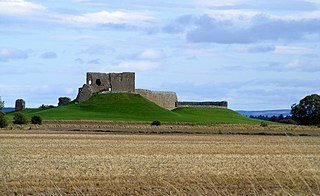
The title Lord Duffus was created by Charles II in the Peerage of Scotland on 8 December 1650 for Alexander Sutherland. He was a descendant of the 4th Earl of Sutherland, who fell in battle in 1333. The title is now extinct, although there may be male-line Sutherlands descended from earlier lairds of Duffus.
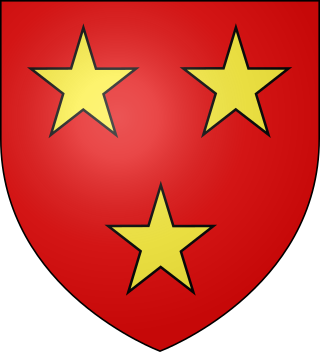
William de Moravia was the 5th Earl of Sutherland and chief of the Clan Sutherland, a Scottish clan of the Scottish Highlands. William, 5th Earl of Sutherland was a loyal supporter of David II of Scotland in the wars against England.
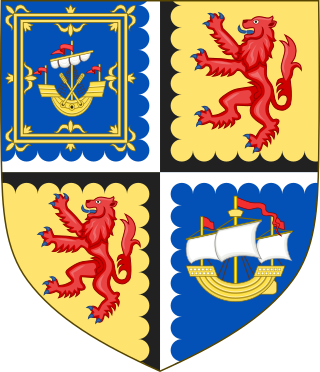
John Sinclair was a Scottish nobleman, 3rd Earl of Caithness and chief of the Clan Sinclair, a Scottish clan of the Scottish Highlands.

The Sutherlands of Forse were a minor Scottish noble family. Kenneth Sutherland, 1st of Forse was the second son of William de Moravia, 5th Earl of Sutherland. They were a cadet branch of the Clan Sutherland.
John Gordon, 11th Earl of Sutherland (1525–1567) was a Scottish magnate. John Gordon supported the chief of his family, his cousin the Earl of Huntly against the Earl of Moray. After Huntly's defeat at Corrichie, he went into exile, and shortly after his return to Scotland he was murdered by a kinswoman.
John Mackay, 11th of Strathnaver, was the eleventh chief of the ancient Clan Mackay, a Scottish clan of the Scottish Highlands.
John Grant of Freuchie was a Scottish landowner.

George Sinclair was a Scottish nobleman, the 4th Earl of Caithness and chief of the Clan Sinclair, a Scottish clan of the Scottish Highlands.

George Sinclair was a Scottish nobleman, the 5th Earl of Caithness and chief of the Clan Sinclair, a Scottish clan based in northern Scotland.
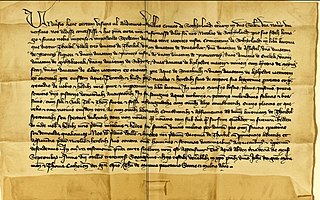
Nicholas Sutherland, 1st of Duffus was a Scottish noble who was seated at Duffus Castle, near Elgin, Moray, Scotland in the 14th and 15th centuries.
William Mackintosh, 15th of Mackintosh was the chief of the Clan Mackintosh, a Scottish clan of the Scottish Highlands. He was also chief of the confederation of clans that was known as the Clan Chattan.

Elizabeth Sutherland, was the 10th Countess of Sutherland having succeeded to the Earldom of Sutherland after her brother John Sutherland, 9th Earl of Sutherland died in 1514.

Alexander Sutherland was the 1st Lord Duffus, a member of the Scottish nobility and a cadet of the Clan Sutherland.

Alexander Sutherland, 3rd of Duffus was a Scottish member of the nobility and a cadet of the Clan Sutherland.

William Sutherland, 5th of Duffus was a member of the Scottish nobility and a cadet of the Clan Sutherland.

William Sutherland, 6th of Duffus was a member of the Scottish nobility and a cadet of the Clan Sutherland.

William Sutherland, 7th of Duffus was a Scottish member of the nobility and a cadet of the Clan Sutherland.

Alexander Sutherland, 8th of Duffus was a member of the Scottish nobility and a cadet of the Clan Sutherland.
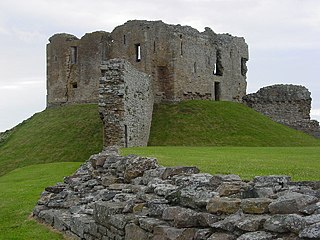
William Sutherland, 9th of Duffus was a member of the Scottish nobility and a cadet of the Clan Sutherland.